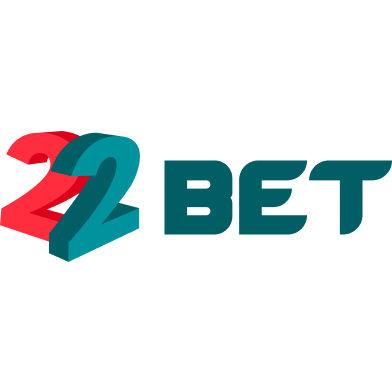Therefore, it becomes interesting for players to try their hands and play the games offered by online casinos. Experienced players study in advance all the information regarding providers, sites, payment methods, and what games are presented. For newcomers in this business, understanding is a bit more difficult and time-consuming. That's why they prefer the recommendations of friends and acquaintances or look for information on the Internet.
In Brazil, quite a lot of games can be offered in the online casino reviews. The only thing a player needs to do is to research what the games are and determine for himself the game he is willing to focus on. Most online casino games in the form of slot machines on various themes and video slots online.
Brazilian best online casino sites 2023
When choosing any casino online Brasil site to play, players from Brazil want to be sure that the providers have taken care of the safety of their customers. Therefore, many people check in advance if the site is not on any blacklists and if it is possible to play on it. Also, a common problem is difficulty with the withdrawal of money. When a player becomes more familiar with the specifics of online casinos, he begins to earn large sums. At the same time, not all online casinos allow you to withdraw earnings to personal cards.
Another important point is the presence of bonuses and clear rules for obtaining them. Players at the start may not always have enough of their own money, and they can use all sorts of welcome bonuses and help from the provider. Large online casinos always help their customers, both new and experienced players. A transparent bonus system means that the casino owns its funds and will not disappear from the expanse of the Internet after six months of operation.
In Brazil, the following best online casino sites are the most common:
- Parimatch is considered one of the best online casino. This brand is known all over the world. The providers do their best to make the site work as conveniently as possible for the customers. Brazilian players will find a lot of interesting games and can not worry about the safety of their own money or the emergence of problems with the withdrawal of funds.
- Boom Casino is considered an equally popular casino. Given their attractive bonus system, many players are actively moving to their site and can safely play the best games that online casinos provide.
- Amuletobet is one of the best services for playing games online. It is safe and has a version in Portuguese. This is very convenient for players from Brazil. Also, all calculations are done in Brazilian reals.
- BetShah is a 24-hour online casino that allows players to get lots of bonuses and play all day long. Providers have taken care of a nice loyalty program for new and experienced players.
- Royal Panda is an online casino that has been operating in the Brazilian market for a long time. Experienced players note the user-friendly site and the many bonuses that help them in the game.
- Jackpot City is also known throughout Brazil. Players can play not only through the website but also through a handy mobile app. This helps players to earn at any convenient moment from their gadgets.
TOP 10 online casinos
In Brazil, online casinos are very popular. Experienced players know in advance which sites it is better not to try to play, and where you can make money. Conventionally, online casinos can be divided into white, gray, and black lists. The latter is the least attractive sites. Users usually note that they don't get their winnings on such sites or access to their accounts is obtained by scammers.
In the gray lists are companies that operate in the world not quite legally. They pay out money, but often there are interruptions and periodically the sites are closed, and in their place, new duplicates appear.
The most recommended are official online casino real money that can operate worldwide. These are large companies that value their reputation and have been working in the online gambling market for many years.
Online casino real money in Brasil for free
Newcomers are often surprised that you can earn real money at online casinos. In this case, it is not always necessary to invest their own money. The main step is to register on the site. After the player has registered, he can start earning real money.
In order not to open a deposit and not to risk their own money, the player should explore the possibility of a no deposit game. Many popular online casinos offer such a chance to newcomers. Also, do not forget about the possibility of getting welcome bonuses. They will become your starting capital for further earnings.
To receive bonuses often do not need to meet additional conditions. For example, you may need a certain number of spins to get a bonus of a few dozen free spins. Also, the player will not always be able to withdraw the money earned on the bonus over a certain limit. However, they can later be used to make money and increase their capital. So, do not delay in deciding to try to play at the online casino, register now!
TOP casino bonuses today
To earn real money for free, the player needs to understand the bonus system. Many sites offer several types of bonuses. These include free spins and multipliers. With free spins, everything is very clear. The player at the registration online casino accrues a certain number of free spins. For example, it could be 200 free spins. They can be spent on the game because after each rotation new combinations could be winning and replenish the player's account.
With multipliers, everything is a little more complicated. Usually, to get them, the player must deposit a certain amount. Only after that, the amount is multiplied several times and the bonus will be in the account. It also sometimes requires the player to play a certain amount, after which the same amount will be credited to his gaming account.
Players need to remember that most online casinos offer bonuses, but to get them, you need to meet certain conditions. Most often it is a certain number of spins or earns a certain amount of money. Only after completing them, you can expect to receive a bonus. Newcomers should not register on sites that offer too high bonuses (higher than on the market). It could be a fraudulent site and you won't see not only bonuses on your account, but your money will disappear.
How to play online casino in Brasil
In Brazil, online casinos cannot officially operate. However, many popular providers offer access to Brazilian players. Since Latin Americans have always been gamblers, they are interested in such offers.
Before registering at any casino games online, it is worth reading reviews about it on various forums. Players always point out important details and help newcomers avoid excesses. For example, you can screen out untrustworthy casinos and play only there, where the payment of earnings from your account is guaranteed.
After choosing a few sites, study the bonuses offered by providers. Each player is interested in different types of bonuses. Beginners are more interested in the presence of a demo version and free spins. So they can understand the principles of the game and build their strategy for earning. Free spins help to get extra money because sooner or later a winning combination falls out.
More experienced users are interested in multipliers and opportunities to increase their income. They always know when you can raise the stakes and how to properly manage their capital in the game.
Payments methods for deposit and withdraw
After registering on the site, players begin to think about how they can deposit money into their accounts and how to properly withdraw them if they win. First of all, you need to understand what payment methods exist at the free online casino. There are only 2.
- Payment with a bank card. When registering, the player ties a bank card to his account. This is a confirmation to the provider that the player is interested in developing the account and is willing to earn. After linking the card, some online casinos provide small bonuses.
- Electronic wallets. Also a very popular payment option. Many providers accept payment from e-wallets. An especially popular system among Brazilian players is considered Boleto Bancario. About 15% of all electronic payments pass through this payment system. This is because this e-wallet does not need to be verified and tied to bank cards.
Concerning payouts, the variations are the same. The player can get his winnings to his bank account or e-wallet. Often, the amount is credited 2 days after sending. It is important to remember that there may be restrictions on the maximum amount to be withdrawn when paying out money from the online casino. Also, you cannot withdraw all the money earned through bonuses.
What about online gambling in Brasil
Even though online casinos are considered illegal in Brazil, players from this country actively gamble. The problem is that providers are willing to give Brazilians access to online gambling. All a player needs to do is register and start earning. However, players are not always willing to take the risk. First of all, you need to understand that the online gambling market in Brazil is growing stronger every year. Many experienced users are starting to make good money at online casinos. The documents regulating the issue of online gambling are already outdated. But not a single amendment mentions online gambling.
Nevertheless, law enforcement authorities in Brazil have no claims to several sites. Players simply go in and register on international online platforms that operate around the world. Many of the providers provide players with access to online casino entertainment. At the same time, the player himself can choose the language he is interested in. This is necessary for those players who do not understand English.
How to start brazillian online casino
To open online casino sites in Brazil, a player needs to monitor the whole market and see what offers are available from competitors. You must understand in advance which area of online gambling you want to develop. Сonduct online casinos reviews. To analyze your competitors' sites, see what welcome bonuses they offer and think about what you can entice players with.
For Brazilians, the language of the online casino must be Portuguese. The English version is universal for the entire world, but having a Portuguese version will immediately appeal to an impressive audience.
Take care of account and site security. Do not skimp on it, because if one customer's account goes missing money or bonuses, you can be blacklisted online casinos. Then you won't have any new clients and the casino will go bankrupt.
The study which games are of most interest to players from Brazil. This country has a really good market for online casinos. Moreover, only 57% of Brazil's territory has the internet. Accordingly, the potential of the market is almost twice as big as it is now.
Do not forget about the legal aspects. In Brazil, it is officially forbidden to play online casino, but now the legislation is a little more lenient in this matter. So make sure that you either do not violate Brazilian law or open a company abroad. In this case, it does not fall under the jurisdiction of Brazil.
Legal online casinos in Brasil
Brazilian officials regularly receive notifications from various online services regarding the entry into the market of the country. At the same time, online casinos are officially banned in the country. So far only certain gambling is allowed in Brazil at the state level. However, given that the country is developing, this may change over the years. Moreover, the legislation is already a bit more lenient for citizens who would like to make money through online casinos. As of today, there are no legal online casinos as such in Brazil. But many international providers cater to the Brazilian audience. They are ready to provide Brazil free online casino games




